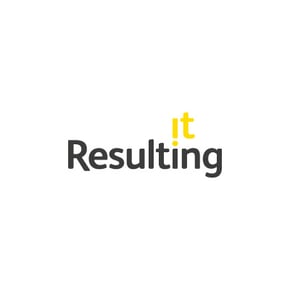Most people working in SAP or ERP will have heard of a Centre of Excellence, but for many people it’s a bit of an old, out-of-date concept that hasn’t really lived up to the hype. There are just as many ney-sayers as there are evangelists when it comes to creating a strong internal SAP capability through a Centre of Excellence.
As loud and proud members of team CoE, we’ve found that time and again when people are opposed to investing in their own centre of excellence it comes down to the same common complaints:
1. Cost - it’s just cheaper to outsource than it is to build our own internal team.
2. Quality - managed service providers specialise in running SAP systems for businesses like us, they’re bound to do the best job.
3. Time - in an ideal world a CoE might be the thing to do, but it will simply take too much time and investment to train our own internal team.
But, is it really all just about cost, quality and time?
Actually it is - but not in the way you might expect.
Still thinking you don’t need an SAP CoE? Here’s three reasons why you do
Cutting costs comes at a price with SAP CoEs
It’s easy to think about cost in black and white terms. Outsourcing generally does cost less on paper than a team of staff in house supporting your SAP Landscape. But, outsourcing is not always proven to give you the best value for money.
For example, what if you outsource the thing you’re best at - the thing that your customers know and love you for? Well you might find that a few years down the line your customers love you a lot less - and your bottom line is beginning to suffer.
But of course not every process SAP runs is vital to your competitive advantage - which is why it’s important to be shrewd when it comes to choosing which aspects of your CoE you outsource.
Yes, go ahead and outsource commodity tasks - but think about what makes you different to your competitors.
Don’t outsource those tasks unless you are absolutely sure the requirements are set in stone, require little intervention and are likely not to require any major rework.
It’s the tasks that require constant re-adjustment that you need to retain.
Your competitive advantage is what keeps you in the market. You need to be agile and adapt quickly when you develop a new product to get it to market quicker than your competition.
Retaining knowledge and skills internally helps you to do this.
If you need capability quickly and have a strong internal team, you can immediately think of who in the organisation can deliver what’s required. You don’t have to think “I’ll need to write a business case, get it approved, set up a new Statement of Work and get a PO raised.”
Yes, these things can be done quickly but more often than not they take time, eat into your time to market and destroy your competitive advantage.
At the end of the day if your cost cutting measures do more harm than good - that is to say they cost you more in lost revenue than they save you in spend - then really they aren’t saving you money at all.
Or to put it another way, when something seems too good to be true - it probably is.
Don’t be fooled by flashes and bangs when it comes to quality from Systems Integrators and Service Providers
We think about the big Systems Integrators and Managed Service Providers as being at the cutting edge of new technology. We see them as a repository of consultants equipped with invaluable knowledge that could give us competitive advantage.
Think again.
Big Consultancies DO have the capacity to learn about new cutting edge technology faster than us, but have they ever implemented it? And even if they have with a few clients, has the individual consultant on your project done it before?
Do you really want some junior consultant using you as a test case for S/4HANA just so they can stick it on their CV and up their day rate? Probably not - especially if you don’t have the knowledge internally to fact-check and challenge what they’re doing.
If you retain skills and knowledge internally, it makes it easier and safer to work with SIs and MSPs. When you have a mature internal team, you can still leverage external companies to implement cutting edge technology, with the benefit that your internal team can keep a close eye on what they’re doing. This reduces risk, improves quality, and allows your internal team to learn the new technology, further increasing your own knowledge and maturity. It’s a win-win situation.
Don’t think that using every tool in the toolbox will give you the greatest advantage. Topline value is not using every tool available, it’s about increasing your competitive edge in the most effective, and often sensible, way possible.
A Systems Integrator might want to test out the latest technology on your organisation, but if it’s not fit for purpose it’s really just bells and whistles that you don’t need. To safeguard quality in and around your SAP system you need people on your internal team who understand what quality really means and who can challenge external agents when necessary.
Your organisation should drive all decision making and it must be strategic. Any external partners cannot be relied on to do this.
While outsourcing to experts can provide quality, it doesn’t guarantee it. And if you outsource everything you’ll have no way of understanding if you’re getting quality or not.
Time well spent
So, the final big problem people have with building a CoE in house is time. It simply takes too much time to find the right people, train them, and get a CoE up and running when the SAP system needs someone to run it right now.
And, even if you do go down the training route, what if your highly paid SAP staff just leave and go to that competitor or go somewhere else?
Well yes, it is a risk - you could even go so far as saying it’s an inevitability - so the real question becomes how can you retain those staff longer, and how much value can they deliver while you’ve still got them.
As Richard Branson once said “Train people well enough so they can leave. Treat them well enough so they don’t want to”.
But there are also ways to make that training and team building process a less painful experience.
For example you don’t have to buy the expertise of your expensive consultants - choose instead to up skill from within your organisation.
These people already understand the business and how the processes they own work, and for them a move into the CoE could be seen as a bonus and a nice pay-rise, encouraging them to stay with you - unlike a consultant who will run off at the drop of a hat.
We all know that external consultants are always on the lookout for the next project and sometimes it’s difficult to retain them on the other side of go-live.
When you train your in house staff by putting them to work on SAP projects from the get-go they pick up all the necessary systems knowledge along the way and they can then move into the support roles that you’ll need after go-live.
Which brings us on to another vital point - people often think creating an internal CoE takes too long because they start doing it too late in the project.
But why?
People see a CoE as a help desk - something that only exists to manage tickets and support the system. Because of this they only think about setting one up as they approach go-live and realise they will need someone to handle all the tickets the end-users will soon be creating.
But a CoE can be so much more than this. Your CoE is the link between IT and business strategy, which means it should exist from the very earliest days of an S/4HANA implementation project.
If you get business people involved from the start of a project, by the time you’re approaching go-live your CoE is ready to go and is staffed with eager business people - not consultants who are thinking about their next project. If you do it right, setting up a CoE takes no time at all - it’s something that's always there.
So next time you’re questioning whether to outsource your CoE think about it like this.
Is your IT department just a cost centre or is it the engine room of your business, running all the vital processes that keep you alive? If it’s the latter, it’s probably something you want to keep control of.
At Resulting, we have years’ of experience helping businesses like yours set up and run CoEs that can deliver what their business needs from IT, and deliver on their business strategy.
Whether you’re about to embark on a project and will be setting up a new CoE, or if you have an existing CoE that could be performing better we can help you get there.











